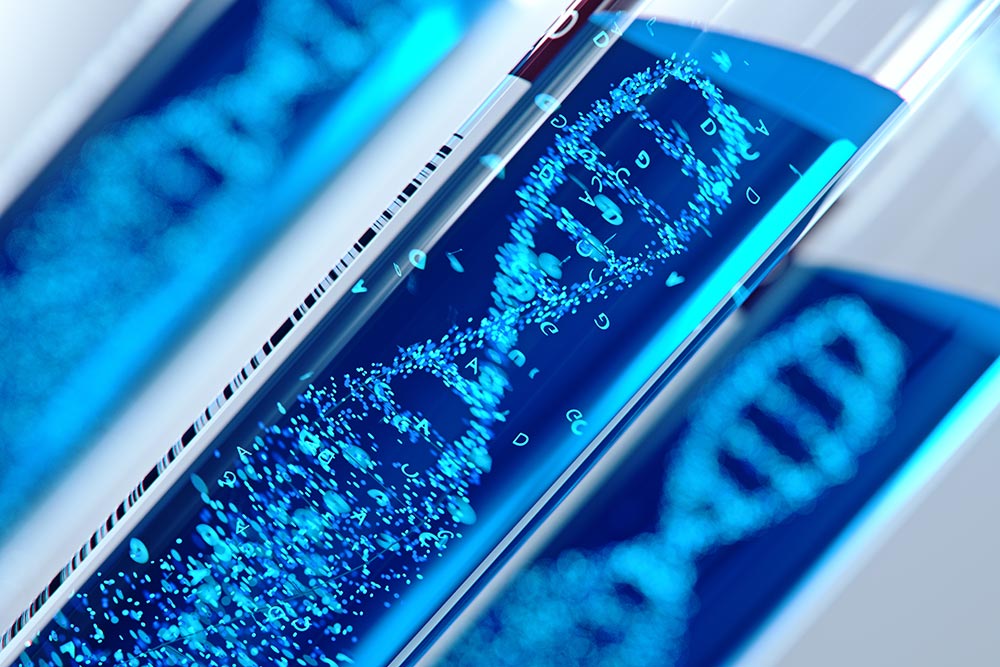Preimplantation genetic testing (PGT) is performed by removing a few cells from the outer trophectoderm (TE) layer of a developing embryo, at the blastocyst stage (day 5 or 6) during an in vitro fertilization (IVF) cycle.


Fairfax Diagnostics will begin a case review after a test request form is submitted by the IVF clinic through our contact us form along with applicable genetic testing reports.
Partners who carry a single-gene disorder and require PGT-M; or who are carriers of a balanced structural chromosome rearrangement and require PGT-SR, must provide genetic reports after consultation with their genetic counselor before a testing plan is developed by Fairfax Diagnostics.
After the test request form is submitted along with applicable genetic reports, Fairfax Diagnostics will provide shipping kits and instructions to your IVF clinic. Embryo biopsy specimens required for testing should be shipped to Fairfax Diagnostics from your IVF clinic. For PGT-M, additional specimens from intended parents and potentially other family members are required for work-up and test validation. PGT-M work-up and test validation for monogenic conditions of all complexities generally take 6-8 weeks after receipt of all samples and reports.
Embryos created using standard in vitro fertilization (IVF) procedures are grown in the embryology laboratory for 5 to 6 days until they form an early embryo called a blastocyst. The embryo is subsequently biopsied to remove a few cells from the outer layer, also called a trophectoderm (TE), which is destined to form the placenta. The removed cells are subsequently used for PGT after the DNA (genetic material) is isolated and prepared for molecular analysis using the PGT test appropriate for the couple’s medical situation. The removal of a few cells from the embryo at the appropriate time is called biopsy. In preparation for the biopsy, oocytes (eggs) are fertilized with sperm using intracytoplasmic sperm injection (ICSI) on Day 0. This is important to avoid test errors due to sperm contamination. On Day 3, progressing embryos may undergo assisted hatching. This involves making a small opening in the outer layer of the embryo, which increases the likelihood of the embryo reaching the hatching blastocyst stage, so that biopsy can be performed. The biopsy will be done for all embryos that become a hatching blastocyst on Day 5 or Day 6 of embryo development. At this advanced stage of early development, the outer layer, or TE, of the embryo begins to break out of its protective shell. The first few cells to emerge are removed and used as the starting point for all PGT assays. Because of the location of the biopsied cells, this procedure is called a trophectoderm biopsy or blastocyst biopsy. The cells of the inner cell mass that form the eventual fetus are not disturbed during this process.
The biopsy, comprised of an average of 5 cells, is quickly frozen and sent to Fairfax Diagnostics for DNA isolation and genetic analysis using PGT. This is the starting point for all 3 PGT tests: PGT-A, PGT-SR, and PGT-M.
PGT for aneuploidy (PGT-A) results are reported 5-7 business days from biopsy sample receipt. For PGT-M and PGT-SR, results are reported 7-10 business days from receipt of embryo biopsy samples. By using PGT with your IVF cycle, only embryos with the correct chromosomal content are transferred increasing the chances of a healthy pregnancy and reducing the risks for miscarriage.
To get started with PGT at Fairfax Diagnostics contact us today.

Every parent hopes to have a healthy child whether through natural conception or IVF. The good news is most babies are born healthy. But for some families who have experienced recurrent obstacles on the road to conception, preimplantation genetic testing (PGT) at Fairfax Diagnostics may be the solution. As pioneers in the fields of reproductive genetics and molecular diagnostics, Fairfax Diagnostics combines decades of biomedical experience and advanced technology to provide results that matter to patients undergoing IVF treatment.
Founded in partnership with Genetics and IVF Institute in 1984, Fairfax Diagnostics offers an exceptional range of medical expertise. Genetic services for example assist people who seek answers to their issues regarding conceiving and the usefulness of genetic testing during their family planning: before conception, during IVF treatments, in an ongoing pregnancy, or when they are seeking to understand pregnancy losses or recurrent miscarriages.
Our vast experience means that we can offer you an extraordinarily talented group of laboratory experts, physicians, and genetic counselors, some of whom are former faculty members at leading universities or the National Institutes of Health (NIH).
Learn about our team, advances in PGT technologies, and more. Sign up to join our weekly newsletter.